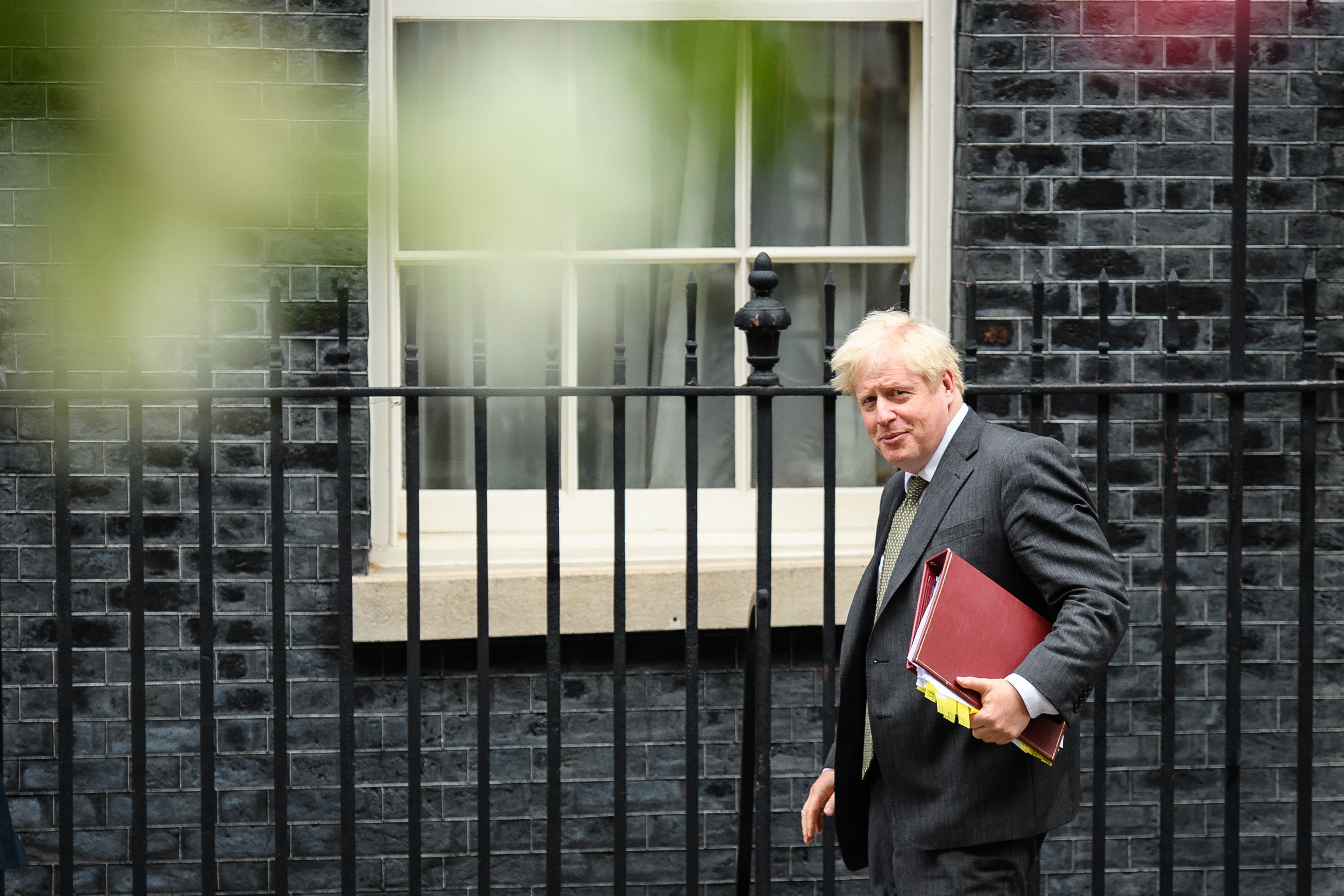What does the looming lockdown rebellion say about the Conservatives under Boris Johnson?
The prime minister may have a working majority of 87 but habitual backbench dissent has eaten away at his authority, says Sean O’Grady


As the anniversary of Boris Johnson’s supposed historic general election victory approaches, it is remarkable how rapidly his authority over his own MPs has evaporated. It is obviously the extraordinary pressure of events that so swiftly derailed so many of his plans. Yet it is also partly down to the sheer illogicality of some policies (notably Brexit), the increasing evidence of sheer incompetence and self-indulgence, which hardly inspires loyalty, plus the Conservative parliamentary party’s addiction to plotting, splitting and generally causing trouble.
As a “new” administration dating back only to last December, the Johnson government has suffered an unprecedented fall from grace – especially within its own supporters in the Commons. As an “old” government, an extension of Conservative or Conservative-led governments in power for more than a decade now it is perhaps more comprehensible. For whatever reason the government seems very tired.
So it is that the 5 November lockdown (an unfortunate date) is the setting for yet another major rebellion. When scores of your own backbenchers are willing to defy a three-line whip on such an important set of measures, then a nominal working majority of 87 becomes just that – notional, theoretical and no defence against the European Research Group, the China Research Group, the Northern Research Group or any of the other euphemistically-named factions that now dominate the Conservative backbenches.
Now it is the turn of the lockdown sceptics to make their presence felt. The last time the government asked for support on stricter measures, the vote on the 10pm curfew and other measures, no less than 42 Conservative MPs voted against the government. However the measures easily passed (by 299 to 82), because the vast majority of Labour MPs abstained.
The latest vote, on the second (English) lockdown will follow that pattern. After the leaks and rushed announcement of the second lockdown, Downing Street made efforts to persuade prominent critics such as Steve Baker that “there is no alternative” given the circumstances. However, there are many more who have spoken out against the lockdown, on the grounds of civil liberties, economic damage and effects on non-Covid illnesses. They are determined to register their opposition with the only weapon they have left, as they see it.
The upshot is that a newly-elected Conservative government with the largest parliamentary majority in three decades is reliant on Labour to govern. Although a tighter situation might make some rebels toe the line, the current government seems in no better a position than the minority administrations led by Theresa May and Mr Johnson, or David Cameron’s slim majority after 2015. “Strong and stable government” remains a slogan rather than a statement of fact.
Relying on opposition votes for crucial policies is not new, though. Tony Blair, who also enjoyed substantial Commons majorities, effectively depended on Conservative support to win votes on the Iraq war and on schools reform, for example. Opposition parties, usually smaller ones, can also abstain on votes of confidence if they take the view that an immediate general election would do them more harm than good (though the Fixed Term Parliament act complicated such calculations). Governments can also avoid losing votes by emasculating their policies in advance, as the Johnson government has done over free school meals and much else – though that is hardly strong, resolute government either.
The historical irony for the Tories is that the strongest and most stable period of “Conservative” government since the fall of Margaret Thatcher was the coalition with the Liberal Democrats from 2010 to 2015, which never lost a single important parliamentary vote and proved surprisingly cohesive.
As with the leaks, the frequent U-turns and the confused communications, habitual backbench dissent is symptomatic of a party that has been in power for too long, and/or has lost much sense of what its mission is. The outlook for such governments is usually poor, even though they can muddle through for a surprisingly long time. In Mr Johnson’s case that could, legally, extend as far as the next election provisionally set for May 2024 – if, that is, he’s unlucky enough to survive that long.
Subscribe to Independent Premium to bookmark this article
Want to bookmark your favourite articles and stories to read or reference later? Start your Independent Premium subscription today.

Join our commenting forum
Join thought-provoking conversations, follow other Independent readers and see their replies
Comments